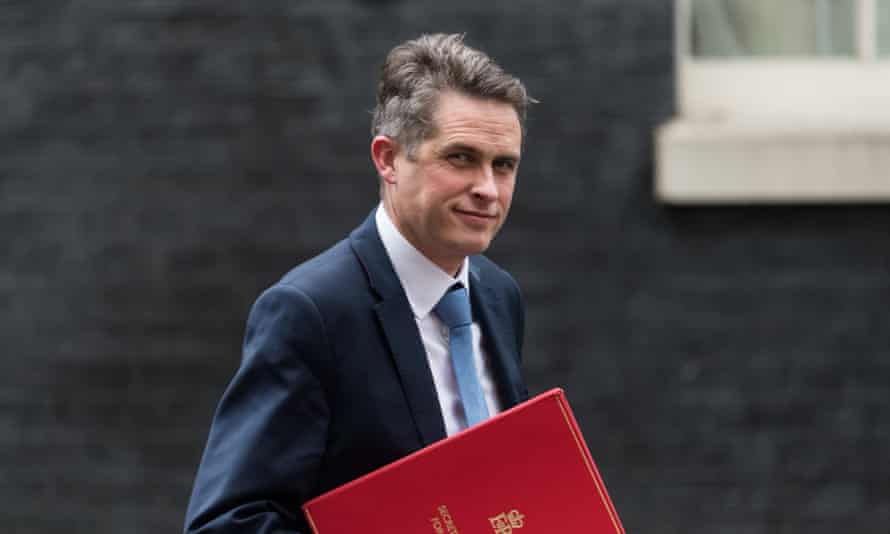UK
Plans for 50% funding cut to arts subjects at universities ‘catastrophic’Artists and musicians speak out against proposal by education secretary and Office for Students

A consultation by the Office for Students (OfS) and education secretary Gavin Williamson said arts subjects were not ‘strategic priorities’. Photograph: Wiktor Szymanowicz/REX/Shutterstock
Lanre Bakare Arts and culture correspondent
THE GUARDIAN
Thu 6 May 2021
Artists and musicians have accused the government of neglecting the country’s “cultural national health” by pursuing a “catastrophic” 50% funding cut to arts subjects at universities, which could come into effect from this autumn.
A consultation by the Office for Students (OfS) and education secretary Gavin Williamson suggested halving the amount spent on “high cost” higher education arts subjects in England – including music, dance, drama, performing arts and archaeology – which it said were not “strategic priorities”.
Jarvis Cocker, singer and former Pulp frontman, said the plans were “astounding” and would put off those from lower socio-economic backgrounds and leave arts subjects as the preserve of wealthy domestic and foreign students.
Lanre Bakare Arts and culture correspondent
THE GUARDIAN
Thu 6 May 2021
Artists and musicians have accused the government of neglecting the country’s “cultural national health” by pursuing a “catastrophic” 50% funding cut to arts subjects at universities, which could come into effect from this autumn.
A consultation by the Office for Students (OfS) and education secretary Gavin Williamson suggested halving the amount spent on “high cost” higher education arts subjects in England – including music, dance, drama, performing arts and archaeology – which it said were not “strategic priorities”.
Jarvis Cocker, singer and former Pulp frontman, said the plans were “astounding” and would put off those from lower socio-economic backgrounds and leave arts subjects as the preserve of wealthy domestic and foreign students.

Cocker said: ‘It always seems to be that it’s art education that seems to be this expendable thing, as if it’s not important.’ Photograph: Dave J Hogan/Getty Images
He said: “I think it will really just put off people from a certain background and that’s a pity because it’s about mixing with people with different ideas, and then you get this cross pollination of stuff that makes things happen.”
Under the plan spending for non-prioritised subjects will be cut from £36m to £19m, with the savings being redirected to other areas such as nursing and computing.
Institutions that will miss out include the University of the Arts London, which includes Central Saint Martins – where Cocker attended in the late 80s – and will lose almost £4m under the new proposals. “It always seems to be that it’s art education that seems to be this expendable thing, as if it’s not important, and it is,” added Cocker.
Es Devlin, the set designer who has worked with Kanye West and Sam Mendes, and who also studied at UAL, said: “We know we need to train doctors and nurses in order to maintain our physical national health. Equally, we need to train artists, musicians, designers in order to maintain our cultural national health.”
The Musicians’ Union said that students, employers and lecturers had been kept out of the conversation, and with a public consultation closing on 6 May after starting in late March the sector has only a few days to “justify its existence”.
Chris Walters, the MU’s national organiser for education, told the Guardian that the proposed cuts would completely transform arts and music education in UK higher education.
“The cuts will be catastrophic for most music provision at university level, affecting the financial viability of music courses and training for the next generation of musicians,” he said.
“Music was worth £5.8bn to the UK economy in 2019, which depends on properly funded university provision. The UK’s world-leading status in music and the arts could be in serious jeopardy from these cuts.”
A Department for Education spokesperson said the proposed reforms would only affect a small proportion of the income of higher education institutions, with the consultation including input from teachers and other voices from the sector.

Matthew Bourne: dance isn’t ‘taken as seriously as I’d thought’
“Our proposed reforms only affect the additional funding allocated towards some creative subjects, and are designed to target taxpayers’ money towards the subjects which support the skills this country needs to build back better,” the spokesperson added.
Other musicians said the move was at odds with the government’s own “levelling up” agenda, while it was derided as “pathetic, shortsighted [and] miserable” by Matthew Herbert.
The MU added that although the consultation recommends making a small number of courses exempt from the cuts, such as for orchestral string players, it was “bizarre” to overlook the contribution that other music makes to the UK economy.
There is now a petition to stop the planned cuts with its founder, the Public Campaign for the Arts, calling the proposals “an attack on the future of UK arts, the creative potential of the next generation”.
He said: “I think it will really just put off people from a certain background and that’s a pity because it’s about mixing with people with different ideas, and then you get this cross pollination of stuff that makes things happen.”
Under the plan spending for non-prioritised subjects will be cut from £36m to £19m, with the savings being redirected to other areas such as nursing and computing.
Institutions that will miss out include the University of the Arts London, which includes Central Saint Martins – where Cocker attended in the late 80s – and will lose almost £4m under the new proposals. “It always seems to be that it’s art education that seems to be this expendable thing, as if it’s not important, and it is,” added Cocker.
Es Devlin, the set designer who has worked with Kanye West and Sam Mendes, and who also studied at UAL, said: “We know we need to train doctors and nurses in order to maintain our physical national health. Equally, we need to train artists, musicians, designers in order to maintain our cultural national health.”
The Musicians’ Union said that students, employers and lecturers had been kept out of the conversation, and with a public consultation closing on 6 May after starting in late March the sector has only a few days to “justify its existence”.
Chris Walters, the MU’s national organiser for education, told the Guardian that the proposed cuts would completely transform arts and music education in UK higher education.
“The cuts will be catastrophic for most music provision at university level, affecting the financial viability of music courses and training for the next generation of musicians,” he said.
“Music was worth £5.8bn to the UK economy in 2019, which depends on properly funded university provision. The UK’s world-leading status in music and the arts could be in serious jeopardy from these cuts.”
A Department for Education spokesperson said the proposed reforms would only affect a small proportion of the income of higher education institutions, with the consultation including input from teachers and other voices from the sector.

Matthew Bourne: dance isn’t ‘taken as seriously as I’d thought’
“Our proposed reforms only affect the additional funding allocated towards some creative subjects, and are designed to target taxpayers’ money towards the subjects which support the skills this country needs to build back better,” the spokesperson added.
Other musicians said the move was at odds with the government’s own “levelling up” agenda, while it was derided as “pathetic, shortsighted [and] miserable” by Matthew Herbert.
The MU added that although the consultation recommends making a small number of courses exempt from the cuts, such as for orchestral string players, it was “bizarre” to overlook the contribution that other music makes to the UK economy.
There is now a petition to stop the planned cuts with its founder, the Public Campaign for the Arts, calling the proposals “an attack on the future of UK arts, the creative potential of the next generation”.
No comments:
Post a Comment